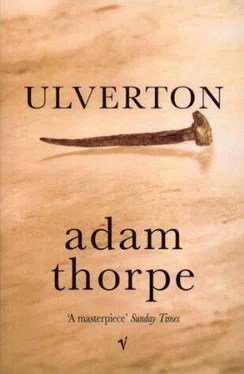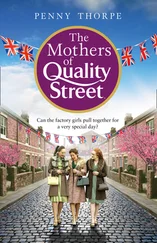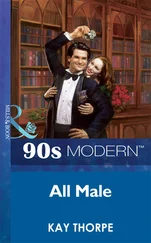Being in the town this day, I viewed the new Corn Exchange, which is exceeding large, and pretty, and built after the manner of a Roman temple. I did good business with a corn merchant from Salisbury, and got a price for a winnowing machine which I must consider, and bought two barley hummellers of improved design. I avoided the new toll-gate by crossing a pasture, which amused my servant greatly. Returning through Ulverdon, I met Mr Webb, the wainwright, who was cutting a mortice into the nave of my new wheel, and who stated he would dish the wheel, it being large enough, at little extra cost. He demonstrated to me his new bruzz, this being a chisel of the shape of a V for the mortice-corners, and much neater in action than his previous tool. It is of much concern to him that a man died owing to the splitting of a wheel he had made, and fears for his reputation. I told him, that I thought it more my doing than his, because I did not cover the waggon through the storms of December, and that the frostiness and dryness of the later winter was all to blame. At the bridge over the river, a vagrant with a mongrel begged for harvest work, but he had no passport. On stating that passports, certificates and suchlike were not required for harvest work, he placed me at a disadvantage as a Christian man, and I had resort to the truth, which was that I did not approve of his face, this being sharpish, and of a gingery stubble cut through by a white scar. He cursed me then and there, which was discomfiting, as his curse was that of the magic arts, and spoke of progeny to be blasted et cetera, et cetera. My servant and a passing neighbour, Mr Hobbs, threw the man into the river, and Mr Hobbs went to tell the warden, that the Justice might be informed of a needed removal.
Harebells thick upon the waysides and pastures. Larkspur, buttercups, and the ramping fumitory amongst the arable. Hoeing does not coerce these into submission, but they are not sufficiently tall or thick to be a veritable nuisance to the crop, as redweed is, or dead-nettle. The advantage of clover, St Foin etc.: to reduce pernicious weeds. The naked fallow, that I dunged with rags at the second earth, and which Farmer Barr prophesied an abundance of redweed for, has grown up again thickly with that cursed flower, and being a dry, hot year, has turned friable and loose, so that any rain that it receives will run through, without benefit to the wheat I am to sow there. If I were to have left it fallow for a third year, then it might have proved fast and good. But by our errors we learn, and prosper, as much as by our virtues. I might leave it as a fallows-stale for a further year.
During the harvest, which began Monday last, despite threatening weather, my maid aided the gatherers, which concerned me, but it is the practice amongst the commoners to labour until the final week. She raked together the gleanings, and did not bend to sheave, as this is arduous for one large in belly. The barley is not good, but sufficient. The oils are taller, the husks thicker, than is customary in a wetter year. My sickles are smooth-edged, as the custom of grasping the corn in bunches to cut seems to me to hold up progress, and the smooth edge cuts straight through without the requirement to bunch. However, barley being of a thicker stalk than other crops, the sickles must be sharpened more frequently, their edges taken off by the stalks, and so my cousin at Effley is insistent on using the serrated blade, which requires no strickle to keep it keen. For a proper comparison, one must try both types, and keep careful time on the acres, that one may be seen to be advantageous over the other, although, for an exact, scientific comparison, reapers of the same strength, age, and application must be used, which is a near impossibility, as every labourer appears, these days, to have his own peculiarities of temperament. But the harvest progresses, anyways, and the weather holds off, it still being exceedingly hot, and one labourer already overcome, though he had no shirt. The air is very dusty, and I have my sneezes, but the sound of the cut corn, like unto the rustling skirt of Nature herself, pleases me as greatly as usual. We have caught twenty-three rabbits and a stoat.
My wife walks at night.
The practice of mowing corn with a scythe is not common in these parts, as women find the effort too arduous, and there are not the men to go round. I have heard it to be three to four times as speedier, with one acre per man mown in a day, compared to but a quarter with the sickle. However, it is possible only with an abundance of strong men, despite the amelioration of time, and in this instance I am content to wait until English genius has conjured a suitable machine that will necessitate no rows of dogged reapers, gatherers, bandsters and whatnot, although I fear that time will be long a-coming. I have this day, walking about the top field with my stick, lifted fifty-five docks, and an abundance of bindweed, and almost as much shepherd’s purse. I watch my maid from a distance, whom I have replaced part of the day in the house with the old dame named Trevick. This old dame reeks terribly from the armpits, and has the most sour piss, which makes the houses of office stink long after she has visited, and makes me concerned for the ordure beneath, that it prove to make injurious manure. My maid consorts with the other harvesters most loosely, and they make much fun of her condition. I fear for the child in this heat. The price of the winnowing machine is too high, I have decided. My new throw-crook, of improved design, having its spindle caged and the handle cranked, has been taken to with some reluctance, but it now proves a most efficient and speedy maker of straw-rope, despite its old-fashioned mortal operators, who would still be berry-picking like children for their sustenance if society had been left to their charge.
My insistence that a furrow be drawn at harrowing time, now allows the reapers a measure in the wheat-field, whose heads are otherwise buried in the stalks and unable to guide them. Thus small Improvements might yield much greater, and foresight be the loadstone of husbandry.
This day being the last of harvest, and thunder in the air, and the sky heavy, we brought the last load home with much rejoicing, and, alas, much ale in the downing. Our festive meal was sobered only by my wife’s appearance, at the door, during the songs, like a ghost of winter past, berating the labourers, and myself, for our luxury, and snatching [away?] from the midst of us the corn Doll, which action upset the labourers greatly. I said nay, she would not harm it, to appease them, for they were somewhat inflamed with drink, and might have pursued her, had I not promised them what I could not in truth [be certain of]. How halting the progress of Improvements, as long as this talk of corn spirits, and fear of suchlike, continues to clot our tines! I left the meal early, as is my wont, before the songs become lewd and what is [permissible?] in the eyes of God after hard work oversteps the boundaries and grows rash. It was my grandfather’s custom, in the time of the Commonwealth, to gather the harvesters in common prayer, and to allow only one tankard of ale apiece, and no songs, and but small fare upon the table. This I cannot hold by, and think it a mistake [not] to reward our brethren placed lower than us on the human scale for their unstinting efforts, or they might deem it [rotten?] that they labour in their sweat for other men, and not themselves, and break the chain of bonds and service that retains us [in] contentment, and themselves in peace. In truth, my wife appeared again before I left, and her countenance was such as to strike a chill in the proceedings, and to still the song, but I begged the assembled company to pursue their merriment, to strike up once more, and [not] allow present ills to frost over their reward. I could find my wife nowhere, but only the corn Doll, torn into a thousand pieces, as if chewed and spat out, upon our marital bed. I must make another the same forthwith, or the men will be exceeding anxious, and fearful of this place, [maintaining] the Shadow of the corn, as they call it, has been set free, to pollute us, as no doubt was my wife’s [desire?]. I must seek God’s forgiveness for adopting such heathen practices, as making a [corn] Doll. I write this in my room, with the merriment exceeding loud downstairs, the squeals of the maid louder than all others. I have touched too much of the wretched tincture, and must perforce [vomit?] though I am heartily pleased at the weight of corn now rested upon the straddle-stones, neatly thatched, that [is] exceeding odorous across the night air.
Читать дальше










